HEALTH + FITNESS
24 Ways to Keep Your Eyes Healthy as You Age
Published
3 months agoon

Shutterstock
As we age, caring for our eye health becomes increasingly important. Our eyes are constantly exposed to environmental factors, screen time, and natural changes in the body that can impact vision. Fortunately, there are numerous ways to protect and maintain our eye health to reduce the risk of age-related conditions. From dietary adjustments to lifestyle changes, small habits can make a big difference in preserving our sight. Here are 24 effective tips to help you maintain clear, healthy vision as you grow older.
Get Regular Eye Exams

Shutterstock
As you age, scheduling regular eye exams becomes essential to maintaining eye health. Annual check-ups help detect early signs of conditions like cataracts, glaucoma, and macular degeneration. Early detection means a greater chance of effective treatment, potentially preserving your vision longer. Make eye exams a consistent part of your health routine to catch any changes in your vision promptly.
Maintain a Balanced Diet

Shutterstock
Eating a diet rich in nutrients that support eye health can have long-lasting benefits. Foods like salmon, walnuts, and flaxseeds are packed with omega-3 fatty acids, which are known to support retinal health. Incorporating vitamins C and E and zinc, found in citrus fruits, nuts, and leafy greens, can protect against age-related eye issues. A colorful, balanced diet provides essential nutrients that keep your eyes strong and functioning well as you grow older.
Wear Sunglasses

Shutterstock
Shielding your eyes from harmful UV rays is crucial for preventing damage to your vision. Sunglasses that block 100% UVA and UVB rays can protect your eyes from sun exposure that contributes to cataracts and macular degeneration. Always wear high-quality sunglasses outdoors, even on cloudy days, as UV rays can penetrate through clouds. Protecting your eyes with sunglasses helps reduce the risk of long-term vision issues.
Limit Screen Time

Shutterstock
Prolonged screen time can strain your eyes, leading to discomfort and blurred vision. Implement the 20-20-20 rule: every 20 minutes, look at an object 20 feet away for at least 20 seconds. This habit helps relax your eye muscles and reduces the effects of digital eye strain. Taking regular breaks from screens can go a long way in protecting your eyesight over the years.
Stay Hydrated

Shutterstock
Staying hydrated benefits every part of your body, including your eyes. Proper hydration is essential for tear production, which keeps your eyes moist and comfortable. Dry eyes can become irritated and may lead to other issues if left unaddressed. By drinking adequate water daily, you’re giving your eyes the moisture they need to stay healthy and comfortable.
Wear Eye Protection

Shutterstock
Using protective eyewear during activities that pose a risk to your eyes is essential. Whether you’re working on home repairs, gardening, or playing sports, wearing safety goggles can prevent injury from flying debris or unexpected impacts. Eye injuries can lead to long-term issues, so it’s crucial to take preventive measures. Prioritizing eye protection in these situations ensures that you’re safeguarding your vision from potential hazards.
Get Plenty of Sleep

Shutterstock
Quality sleep is not only refreshing but also allows your eyes to rest and repair. During sleep, your eyes get a break from exposure to light and other environmental factors that can cause strain. Adequate sleep can reduce eye redness and dryness, helping your eyes feel more comfortable. Incorporating enough rest into your daily routine supports optimal eye health over time.
Manage Blood Sugar Levels

Shutterstock
High blood sugar levels can damage the retina, especially for those with diabetes, making blood sugar management vital for eye health. Regular monitoring and maintaining stable blood sugar levels help prevent diabetic retinopathy, which can lead to vision loss. Eating balanced meals and avoiding excessive sugar intake supports overall eye health. By keeping blood sugar in check, you’re protecting your eyes from potential complications.
Monitor Blood Pressure and Cholesterol

Shutterstock
Both high blood pressure and cholesterol can impact the small blood vessels in your eyes, potentially causing damage over time. Maintaining healthy levels of blood pressure and cholesterol helps reduce the risk of retinal issues, such as hypertensive retinopathy. Regular check-ups and a healthy lifestyle contribute to better vascular health, which directly benefits your eyes. By managing these factors, you’re taking a proactive step toward preserving your vision.
Avoid Smoking

Shutterstock
Smoking increases the risk of several eye conditions, including cataracts and age-related macular degeneration (AMD). The chemicals in cigarettes can damage the optic nerve and harm the sensitive tissues in your eyes. Quitting smoking or avoiding secondhand smoke is a significant step in protecting your eye health. A smoke-free lifestyle provides your eyes with a better chance of staying healthy as you age.
Take Breaks While Driving

Shutterstock
Extended periods of driving can lead to eye strain and discomfort, particularly in bright or low-light conditions. Taking breaks during long drives allows your eyes to rest, reducing dryness and fatigue. Adjusting your car’s lighting and wearing sunglasses in sunny conditions can further protect your eyes while on the road. Regularly resting your eyes during trips promotes eye comfort and reduces strain.
Adjust Lighting

Shutterstock
Ensuring proper lighting when reading or working can reduce strain on your eyes. Bright, even lighting prevents your eyes from having to work harder to see details, which can lead to fatigue. Position lights behind your shoulder for reading and adjust screens to reduce glare when working on computers. Small adjustments in lighting can make a big difference in protecting your vision.
Wear Proper Prescription Glasses or Contacts

Shutterstock
Keeping your prescription up-to-date is crucial for preventing unnecessary eye strain. Wearing outdated lenses can lead to headaches, blurred vision, and discomfort as your eyes struggle to focus. Regular eye exams help ensure your prescription meets your current needs, allowing you to see clearly and comfortably. Proper corrective lenses contribute significantly to maintaining your overall eye health.
Use Eye Drops for Dryness
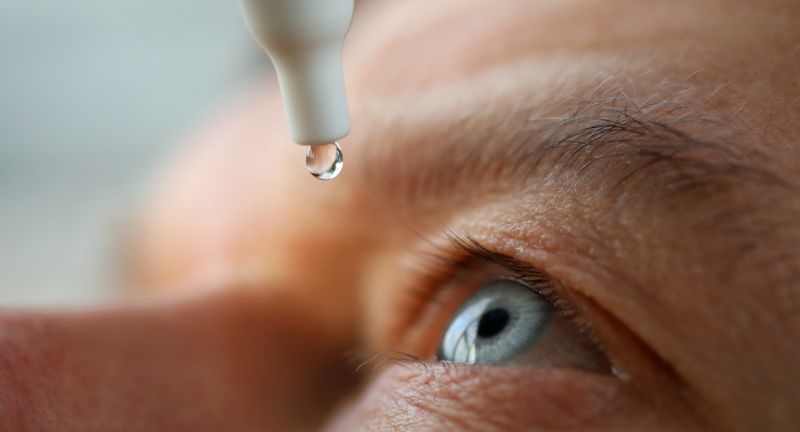
Shutterstock
Dry eyes are common as we age, but they can be managed with over-the-counter artificial tears. Eye drops provide moisture, reducing irritation and helping you feel more comfortable throughout the day. If you experience persistent dryness, consult an eye specialist for advice on the best product or treatment. Keeping your eyes moist is essential for preventing more severe discomfort and maintaining good eye health.
Eat Leafy Greens

Shutterstock
Leafy greens like spinach, kale, and collard greens are rich in lutein and zeaxanthin, antioxidants that protect against age-related eye issues. These nutrients are particularly beneficial for maintaining retinal health and reducing the risk of macular degeneration. Incorporating a variety of greens into your meals supports both your overall and eye-specific health. Adding these vegetables to your diet is an easy step toward stronger, healthier eyes.
Exercise Regularly

Shutterstock
Regular physical activity enhances blood circulation, which in turn benefits eye health. Improved circulation helps deliver oxygen and nutrients to the eyes, promoting optimal function and reducing the risk of issues related to poor blood flow. Exercise can also aid in controlling conditions like high blood pressure and diabetes, both of which can negatively affect your vision. By staying active, you’re not only strengthening your body but also protecting your eyes.
Reduce Screen Glare
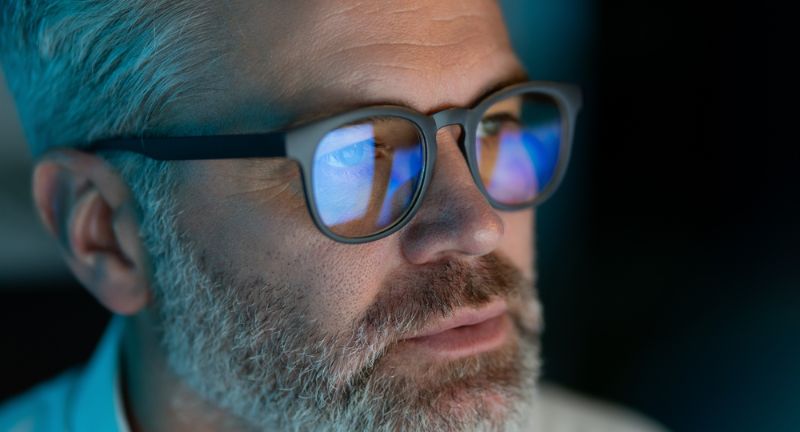
Shutterstock
Screen glare can increase eye strain, particularly during prolonged computer use. Adjusting your screen brightness and positioning can help reduce this glare, making it easier for your eyes to focus comfortably. Alternatively, anti-glare screens or glasses are available to minimize strain caused by bright screens. Taking steps to reduce glare helps protect your eyes during hours spent in front of digital devices.
Practice Good Hygiene with Contact Lenses
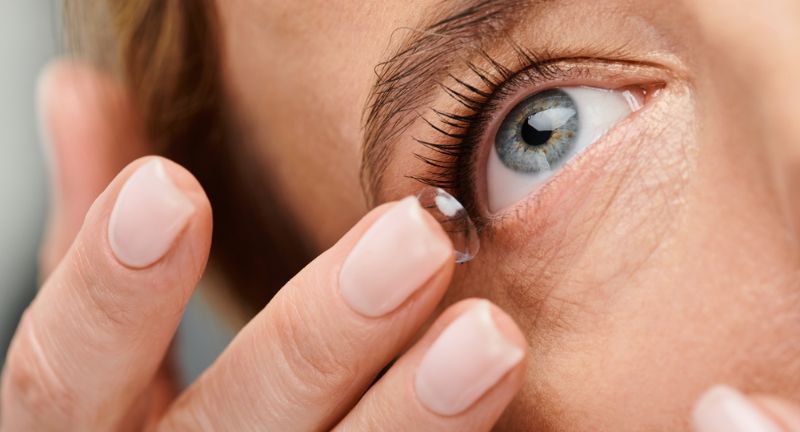
Shutterstock
Proper contact lens hygiene is essential to prevent eye infections and maintain eye health. Always wash your hands before handling your lenses and follow recommended cleaning routines. Never wear contacts longer than advised, as this can lead to discomfort and potential complications. By following these practices, you’ll keep your eyes healthy and comfortable while using contact lenses.
Do Eye Exercises

Shutterstock
Simple eye exercises, like shifting your focus from near to far objects, can help relax your eye muscles and reduce strain. These exercises can be especially useful if you spend a lot of time reading or working at a computer. Regularly practicing eye exercises helps maintain flexibility in the eye muscles, promoting easier and more comfortable focusing. Incorporating eye exercises into your routine is an easy way to support eye health.
Wear Hats Outdoors

Shutterstock
A hat with a brim offers additional protection from the sun’s harmful rays, shielding your eyes from UV exposure. Combined with sunglasses, a hat can further reduce your risk of sun-related eye conditions. The added shade helps prevent squinting, keeping your eyes more relaxed in bright conditions. Wearing a hat is a simple yet effective way to protect your eyes when outdoors.
Monitor Your Medication

Shutterstock
Some medications have side effects that can affect your eyes, such as dryness, blurred vision, or sensitivity to light. If you notice changes in your vision after starting a new medication, consult your doctor. They may be able to adjust your dosage or suggest an alternative treatment to alleviate these effects. Staying aware of how medications impact your eyes helps you proactively care for your vision.
Use Humidifiers in Dry Climates

Shutterstock
Dry indoor air can contribute to eye dryness and irritation, making a humidifier a helpful tool in maintaining eye comfort. By adding moisture to the air, humidifiers help prevent your eyes from drying out, especially in winter or arid climates. Keeping a good humidity level in your home supports the natural moisture balance in your eyes. Using a humidifier is an easy way to create an eye-friendly indoor environment.
Reduce Alcohol Intake

Shutterstock
Excessive alcohol consumption can lead to nutrient deficiencies, including vitamins important for eye health. Limiting alcohol helps maintain your body’s nutrient balance, promoting better overall and eye-specific health. Moderation also reduces the risk of dehydration, which can contribute to eye dryness and discomfort. By consuming alcohol in moderation, you’re supporting your eyes’ long-term wellness.
Stay Updated on Eye Health News
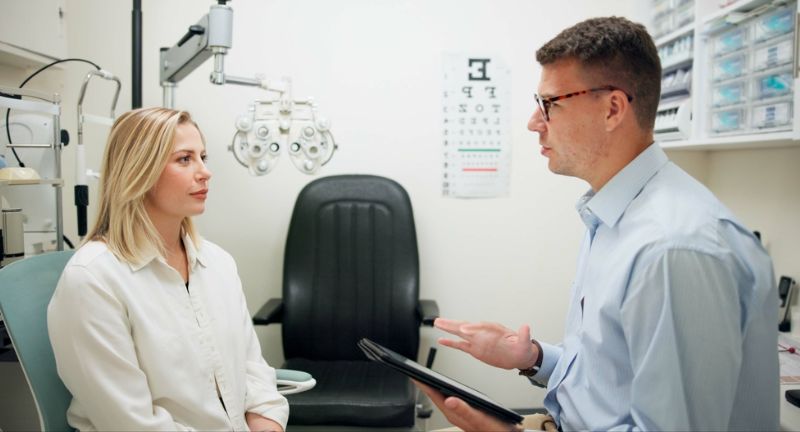
Shutterstock
Advances in eye health research continue to provide new insights into prevention and treatment options. Staying informed on the latest findings helps you make educated decisions about your eye care routine. Follow reputable sources or consult your eye doctor for updates on new treatments, products, and practices. Staying proactive with the latest eye health knowledge ensures you’re taking the best possible care of your vision.
Conclusion
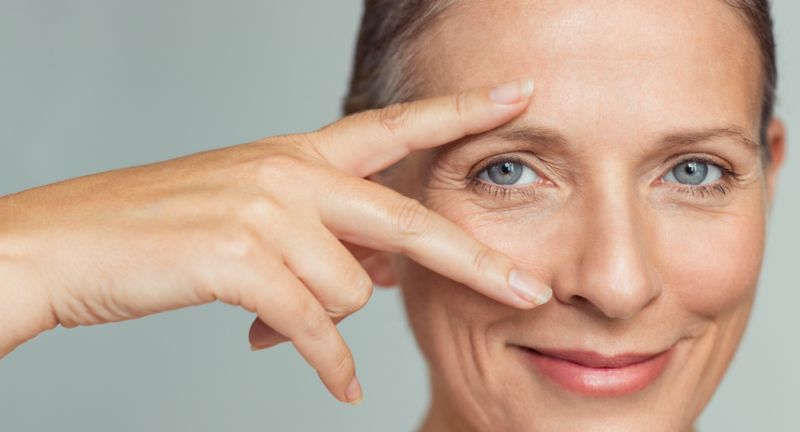
Shutterstock
Taking proactive steps to care for your eyes as you age can make a world of difference in preserving your vision and quality of life. Simple adjustments to your daily routine, diet, and habits are effective ways to support long-term eye health. By staying mindful of these tips and scheduling regular eye exams, you’re giving your eyes the care they deserve. Healthy vision is a lifelong commitment that pays off with clearer sight and less discomfort. Embrace these habits now to ensure your eyes stay vibrant and strong for years to come.
Related Topics:

More From Lifestylogy
-
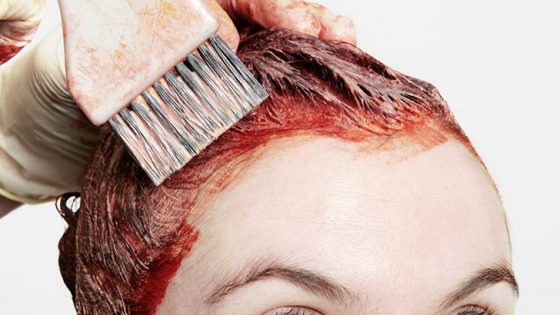

New Study Links Hair Dye to Increased Risk of Breast…
-


Cheryl Burke Opens Up About Her Decision to Quit Drinking
-


Tom Hanks Has Stern Words For Non-Mask Wearers
-


How Cutting Out These Four Foods Helped One Woman Lose…
-


New Study Shows Powerful Anti-Cancer Effects of Green Tea
-


Jennifer Aniston Urges Fans to Wear a Face Mask
-


Spring Cleaning? These Are The Dirtiest Things in Your House
-


Teri Hatcher Opens Up About Body Confidence at 55
-
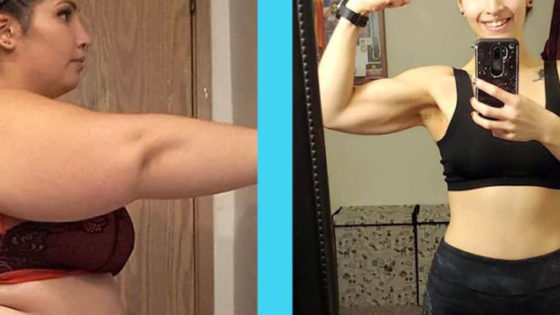

These Three Diet Changes Helped a Woman Shed 135 Pounds